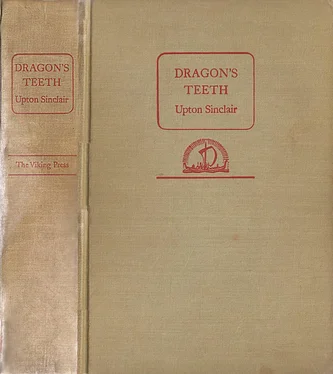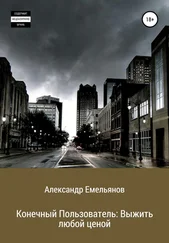Пользователь - o 3b3e7475144cf77c
Здесь есть возможность читать онлайн «Пользователь - o 3b3e7475144cf77c» весь текст электронной книги совершенно бесплатно (целиком полную версию без сокращений). В некоторых случаях можно слушать аудио, скачать через торрент в формате fb2 и присутствует краткое содержание. Жанр: Старинная литература, на русском языке. Описание произведения, (предисловие) а так же отзывы посетителей доступны на портале библиотеки ЛибКат.
- Название:o 3b3e7475144cf77c
- Автор:
- Жанр:
- Год:неизвестен
- ISBN:нет данных
- Рейтинг книги:4 / 5. Голосов: 1
-
Избранное:Добавить в избранное
- Отзывы:
-
Ваша оценка:
- 80
- 1
- 2
- 3
- 4
- 5
o 3b3e7475144cf77c: краткое содержание, описание и аннотация
Предлагаем к чтению аннотацию, описание, краткое содержание или предисловие (зависит от того, что написал сам автор книги «o 3b3e7475144cf77c»). Если вы не нашли необходимую информацию о книге — напишите в комментариях, мы постараемся отыскать её.
o 3b3e7475144cf77c — читать онлайн бесплатно полную книгу (весь текст) целиком
Ниже представлен текст книги, разбитый по страницам. Система сохранения места последней прочитанной страницы, позволяет с удобством читать онлайн бесплатно книгу «o 3b3e7475144cf77c», без необходимости каждый раз заново искать на чём Вы остановились. Поставьте закладку, и сможете в любой момент перейти на страницу, на которой закончили чтение.
Интервал:
Закладка:
Now Lanny had to mention that musical geniuses are apt to be erratic, and often it is safer to
know them through their works. One cannot advertise for one as for a butler or a chef; and
suppose they got drunk, or took up with the parlor-maid? Lanny said that a consecrated artist
such as Kurt Meissner would be hard to find. Irma remarked: "I suppose they wouldn't be
anywhere but in Germany, where everybody works so hard!"
V
Among the guests they had met at the Schloss was an uncle of their host, the Graf Oldenburg
of Vienna. The Meissners had told them that this bald-headed old Silenus was in financial
trouble; he always would be, it having been so planned by the statesmen at Paris, who had cut
the Austro-Hungarian Empire into small fragments and left a city of nearly two million people
with very little hinterland to support it. The Graf was a gentleman of the old school who had
learned to dance to the waltzes of the elder Strauss and was still hearing them in his fancy. He
invited Irma and Lanny to visit him, and mentioned tactfully that he had a number of fine
paintings. Since it was on their way home, Lanny said: "Let's stop and have a look."
It was a grand marble palace on the Ringstrasse, and the reception of the American visitors
was in good style, even though the staff ot servants had been cut, owing to an outrageous law
just passed by the city administration—a graduated tax according to the number of your
servants, and twice as high for men as for women! But a Socialist government had to find
some way to keep going. Here was a city with great manufacturing power and nowhere to
export its goods. All the little states surrounding it had put up tariff barriers and all efforts at a
customs union came to naught. Such an agreement with Germany seemed the most obvious
thing in the world, but everybody knew that France would take it as an act of war.
An ideal situation from the point of view of a young art expert with American dollars in the
bank! The elderly aristocrat, his host, was being hounded by his creditors, and responded
promptly when Lanny invited him to put a price on a small-sized Jan van Eyck representing the
Queen of Heaven in the very gorgeous robes which she perhaps was now wearing, but had
assuredly never seen during her sojourn on earth.
Among Irma's acquaintances on Long Island was the heiress of a food-packing industry; and
since people will eat, even when they do nothing else, Brenda Spratt's dividends were still
coming in. She had appeared fascinated by Lanny's accounts of old masters in Europe and his
dealings in them; so now he sent her a cablegram informing her that she could obtain a unique
art treasure in exchange for four hundred and eighty thousand cans of spaghetti with tomato
sauce at the wholesale price of three dollars per case of forty-eight cans. Lanny didn't cable all
that, of course—it was merely his way of teasing Irma about the Long Island plutocracy. Next
day he had a reply informing him at what bank he could call for the money. A genuine triumph of
the soul of man over the body, of the immortal part over the mortal; and incidentally it would
provide Lanny Budd with pocket-money for the winter. He invited his wife to state whether her
father had ever done a better day's business at the age of thirty-one.
The over-taxed swells of Vienna came running to meet the American heiress and to tell her
brilliant young husband what old masters they had available. Irma might have danced till
dawn every night, and Lanny might have made a respectable fortune, transferring culture to
the land of his fathers. But what he preferred was meeting Socialist writers and party leaders
and hearing their stories of suffering and struggle in this city which was like a head without a
body. The workers were overwhelmingly Socialist, while the peasants of the country districts
were Catholic and reactionary. To add to the confusion, the Hitlerites were carrying on a
tremendous drive, telling the country yokels and the city hooligans that all their troubles
were due to Jewish profiteers.
The municipal government, in spite of near-bankruptcy, was going bravely ahead with a
program of rehousing and other public services. This was the thing of which Lanny had been
dreaming, the socialization of industry by peaceful and orderly methods, and he became
excited about it and wished to spend his time traveling about looking at blocks of workers'
homes and talking to the people who lived in them. Amiable and well-bred people, going to
bed early to save light and fuel, and working hard at the task of making democracy a success.
Their earnings were pitifully small, and when Lanny heard stories of infant mortality and child
malnutrition and milk prices held up by profiteers, it rather spoiled his enjoyment of stately
banquets in mansions with historic names. Irma said: "You won't let yourself have any fun, so
we might as well go on home."
VI
It wasn't much better at Bienvenu, as the young wife was soon to learn. The world had become
bound together with ties invisible but none the less powerful, so that when the price of corn
and hogs dropped in Nebraska the price of flowers dropped on the Cap d'Antibes. Lanny
explained the phenomenon: the men who speculated in corn and hogs in Chicago no longer gave
their wives the money to buy imported perfumes, so the leading industry of the Cap went
broke. Leese, who ran Bienvenu, was besieged by nieces and nephews and cousins begging to
be taken onto the Budd staff. There was a swarm of them already, twice as many as would have
been employed for the same tasks on Long Island; but in the Midi they had learned how to
divide the work, and nobody ever died from overexertion. Now there were new ones added, and
it was a delicate problem, because it was Irma's money and she was entitled to have a say. What
she said was that servants oughtn't to be permitted to bother their employers with the hard-luck
stories of their relatives. Which meant that Irma still had a lot to learn about life in France!
The tourists didn't come, and the "season" was slow—so slow that it began to stop before it got
started. The hotelkeepers were frightened, the merchants of luxury goods were threatened
with ruin, and of course the poor paid for it. Lanny knew, because he went on helping with that
Socialist Sunday school, where he heard stories which spoiled his appetite and his enjoyment of
music, and troubled his wife because she knew what was in his thoughts—that she oughtn't to spend
money on clothes and parties while so many children weren't getting enough to eat.
But what could you do about it? You had to pay your servants, or at any rate feed them, and
it was demoralizing if you didn't give them work to do. Moreover, how could you keep up the
prices of foods except by buying some? Irma's father and uncles had fixed it firmly in her mind
that the way to make prosperity was to spend; but Lanny seemed to have the idea that you
ought to buy cheap foods and give them to the poor. Wouldn't that demoralize the poor and
make parasites of them? Irma thought she saw it happening to a bunch of "comrades" on the
Riviera who practically lived on the Budd bounty, and rarely said "Thank you." And besides,
what was to become of the people who raised the more expensive foods? Were they going to
have to eat them?
Life is a compromise. On Sunday evening Lanny would go down into the Old Town of Cannes
and explain the wastes of the competitive system to a group of thirty or forty proletarians:
Читать дальшеИнтервал:
Закладка:
Похожие книги на «o 3b3e7475144cf77c»
Представляем Вашему вниманию похожие книги на «o 3b3e7475144cf77c» списком для выбора. Мы отобрали схожую по названию и смыслу литературу в надежде предоставить читателям больше вариантов отыскать новые, интересные, ещё непрочитанные произведения.
Обсуждение, отзывы о книге «o 3b3e7475144cf77c» и просто собственные мнения читателей. Оставьте ваши комментарии, напишите, что Вы думаете о произведении, его смысле или главных героях. Укажите что конкретно понравилось, а что нет, и почему Вы так считаете.




